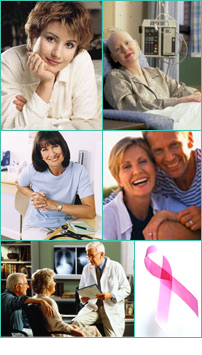Fatigue (i.e., feeling tired or weak; loss of energy) is a common complaint of women undergoing follow-up adjuvant chemotherapy for breast cancer. In addition, some chemotherapy drugs also can affect the function of the heart.
Although loss of energy is a common side effect of chemotherapy, there are several things you can do to have more energy while you are being treated. Regaining a normal energy level will require a good attitude, healthy food, and effort on your part.
Get adequate sleep every night.
You may want to use visualization to help revitalize your body. Close your eyes and imagine yourself getting stronger, such as picturing yourself being healthy and visualizing yourself hiking, swimming, or cycling. Positive energy and patience with your body and the recovery process will go a long way to boosting your energy levels.
Engage in other activities that lower stress and help you to relax, such as meditation, deep breathing exercises, reading books and magazines, listening to music, and spending quality time with family and friends.
Having psychological counseling and joining a support group can be very helpful in lowering your stress and helping you recover emotionally from the challenges of the llness and its treatment.
It is very important for you to be aware of what you beverages and foods you put in your body. Drink lots of fluids to keep yourself hydrated. When thinking about what to eat, remember that food is the ultimate source of energy.
A bad diet, one dominated by heavily processed foods, trans fats, sugars, and refined starches (e.g.: white bread, pretzels, and cookies) can dampen your energy level and your mood.
On the other hand, a smart diet, one which balances complex carbohydrates, proteins, and good fats (omega 3s and 6s) definitely will give you an energy boost. Ask your oncologist, your oncology nurse, and a dietician or nutritionist for recommendations regarding any types of foods and/or nutritional supplements (such as iron) that may be especially beneficial for you during your treatment.
To make doing things around your apartment or house easier, place the things you need frequently within easy reach to minimize climbing on stepladders or having to walk upstairs, downstairs, or to a distant storage space. If you feel too tired to perform all of the routine activities needed in your apartment or house during your treatment, ask others to help you.
If you occasionally experience shortness of breath, try breathing with pursed lips.
If you experience dizziness from changes in posture. get up slowly from a reclining or sitting position.
When all you want to do is stay in bed, you need to try to get out of bed for a little while when you think you are able to do so. Even if you just get up and walk around the room for 1 minute, thatís a fantastic first step. Next time, you may be able to walk for a minute and a half. Recovering your stamina will be a cumulative process ó donít rush it. When you feel that you are able to exercise, first talk to your oncologist and oncology nurse for recommendations on how to start exercising again and what types of exercise are appropriate for you.
If your health and the weather permits, try to get outside every day. If none of the medications you are taking make you sensitive to the sun, stand in the sunshine for a few minutes. Take several deep breaths. Being outdoors even for a little while will help ward off depression and increase your sense of well-being.
If you have anemia caused by chemotherapy, consult your oncologist for consideration of medications to treat the anemia. See our Q&A called, "Is there anything I can do to manage and treat the anemia I am experiencing during chemotherapy?"
Discuss all the medications you take with your oncologist, oncology nurse, and pharmacist to ensure that none of the non-chemotherapy medications are causing fatigue.
Talk to your oncologist and your oncology nurse for other suggestions about managing fatigue and restoring your strength.
Be patient with yourself, your body, and the recovery process. A good attitude, healthy food, and starting to exercise your body ó these are your tools for building stamina and vigor.
|


